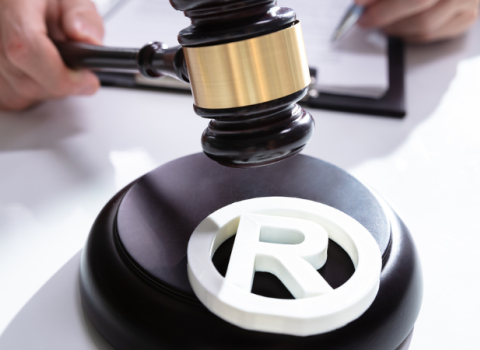
A break in the language barrier…
The agreement, which does away with the need to translate patents into all languages of the 32 countries signed up the European Patents Convention, is going to save him bags of money and time as he chooses European markets in which to launch two of his inventions.
“With this agreement simplifying the translation requirements for patent applications, it means I can consider countries I wouldn’t previously have thought of,” he said in a phone interview Wednesday.
He has patented two innovations that Cyberfab uses to help transmit data to people on the move, such as paramedics in ambulances, with the patent authorities in the US.
At the same time Setton has applied under an international patent cooperation treaty for “patent pending” status for them here in Europe.
Time to test the water
This gives him time to test the water and pick his national markets here before beginning the expensive process of applying for European patent protection, he said.
Initially he was planning to apply for protection in the biggest markets only: Germany, the UK and his native France. Now, however, he’s thinking bigger.
“We have customers in Hungary, so maybe it makes sense to apply for protection there as well,” he wondered as he considered the cost implications of the Senate vote on Tuesday.
Typically, translation costs account for between 20 per cent and 40 per cent of the total cost of filing for patent protection in Europe, according to the Munich-based European Patent Office.
Ratification of the agreement will automatically become legally binding in the countries that have signed it within six months of France’s ratification this week.
It means that patent applicants will need to submit their patents in only one language: French, English or German, the three official languages recognised under the European Patent Convention that came into force three decades ago.
Patent claims – the short summaries of the patents – will have to be made available in all three official languages.
Countries with English, French or German as their national language will no longer demand translations of patents filed in one of the other two official languages. Other countries will designate one of the three as their official language for patents, while allowing applicants to file in the local tongue as well.
Up to now patent applications have been filed in the languages of each country the applicant wants to exploit his or her invention in.
Common sense arrives
So the London Agreement brings a lot of common sense to the process of applying for patents in Europe. “We submit reports to the European Commission in English so why do patents have to be translated into 18 or so languages?” Setton asked.
What is more, translation work has to be undertaken by highly specialised translators because of the technical nature of most patent applications. “In our field there only a handful of qualified translators and they don’t come cheap,” Setton said.
The EPO has been pushing for ratification of the London Agreement for years. Reiner Osterwalder, its spokesman, welcomed the vote in Paris, describing it as a concrete step towards a more harmonised and efficient patent regime in Europe.
Likewise, the European Commission, which has tried to unite the fragmented patent landscape here for decades, responded enthusiastically to the vote by the French Senate.
“It brings a single market for innovation a big step closer to becoming reality,” said Charlie McCreevy, the commissioner for the internal market.
In the past year McCreevy has tried to revive hopes of creating a single European patent – dubbed the Community Patent - for the whole of Europe, to replace the patchwork of national patent regimes that exist now.
However, many obstacles to that goal remain. For a start, not all countries in the Union have signed up to the London Agreement yet. Some oppose the London Agreement because they believe that dropping their language from patents will harm their economic clout in the world, and make English the de-facto commercial tongue of the continent.
Spain remains its biggest opponent. It argues that Spanish is more widely spoken than French around the world, and should therefore be recognised as an official language too.
Many new members of the EU haven’t yet ratified the agreement but are expected to, now that France is on board. “Many countries have been waiting for France to move before signing up,” said Osterwalder.
Then there is the separate and equally thorny issue about how to handle patent disputes.
At present patent holders must register their EPO-approved patent in every country they want to protect it in, and patent disputes are fought in national courts under that country’s patent code.
What chance a Community Patent?
A Community Patent would be enforceable in all countries signed up to the European Patent Convention, and would have one single patent court for all patent litigation in Europe. Sounds good but the idea has remained just that, an idea, for over three decades.
A separate initiative under debate by European lawmakers now aims to create one single jurisdiction for patents of all nationalities, as well as one dedicated European patent court.
The so-called European patent litigation agreement (EPLA) was first proposed by France in the 1990s, but as others warmed to the idea in recent years, France itself back off, calling such an agreement unconstitutional under French law.
There are rumours of another change of heart following the arrival of Nicolas Sarkozy to the Elysée Palace, according to officials at the European Commission. “There’s some talk about France warming to the EPLA idea again out there in the blogosphere,” said one who asked not to be named.
Setton has followed the EPLA debate as closely as the debate about patent translations. “It’s very complicated, trying to get the different national jurisdictions to work together using one court,” he said. But he urged Europe’s leaders to push ahead.
“The London Agreement is great news, especially for small companies, and the EPLA is also a step in the right direction but the Community Patent should still be the aim. One set of legislation for all the countries, one court; when you have the free circulation of goods and services throughout the Union, it makes sense to have one single patent protection system. You have that for copyright, why not patents?” he said.





 A unique international forum for public research organisations and companies to connect their external engagement with strategic interests around their R&D system.
A unique international forum for public research organisations and companies to connect their external engagement with strategic interests around their R&D system.